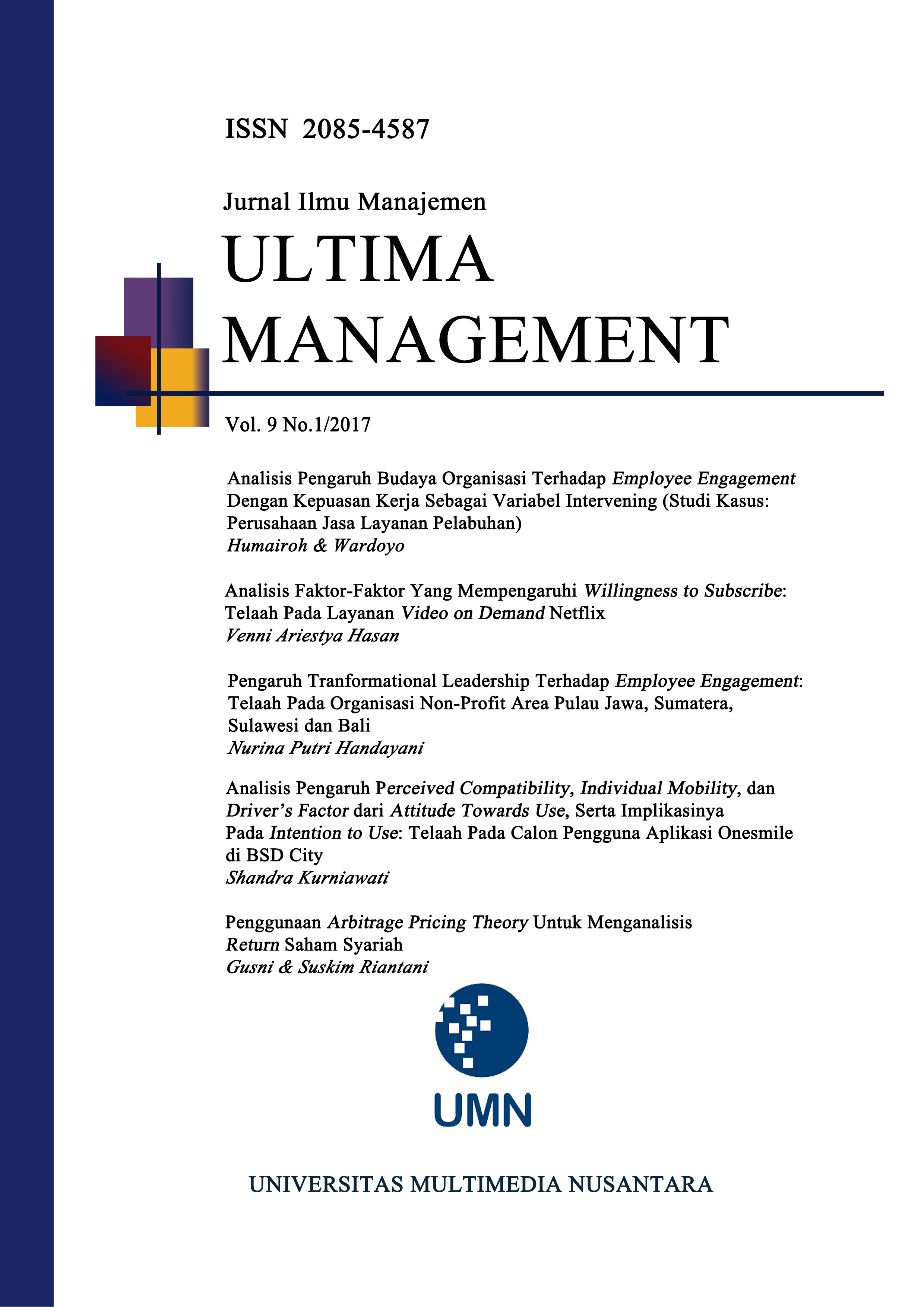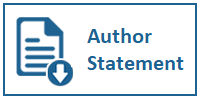Pengaruh Transformational Leadership Terhadap Employee Engagement: Telaah Pada Organisasi Non Profit Area Pulau Jawa, Sumatera, Sulawesi dan Bali
DOI:
https://doi.org/10.31937/manajemen.v9i1.596Abstract
Recognizing the engagement levels of employees is in a grey area, organizations are still less aware of it. Employee engagement is the level of commitment and involvement an employee has, towards their organization and its value. Employee engagement actually creates many improvements within the organization that can result in employee work productivity, hence increasing the organization capability. Author wants to prove that transformational leadership is valid theory in encouraging person's engagement in a non-profit organization. Transformational leadership is the attitude of a leader who is able to become the motor of change, has charisma in show stance, put themselves in difficult issues, emphasizing trust, and has a vision and a sense of mission. This study examines how transformational leadership and employee engagement works in IFL's staff – a youth led non-profit organization (NGO) concerning on youth empowerment for social changes. Moreover, the study seeks the effect of transformational leadership on employee engagement at IFL. Author shares questionnaire to 70 respondents. This study used descriptive and verification method by using t-test. After going through several stages of statistical tests, the author gets the result that transformational leadership and employee engagement has been well-implemented in Indonesian Future Leaders (IFL). Employee engagement variables can be explained by independent variables of idealized influence, inspirational motivation, intellectual stimulation, and individualized concerns by 29%. The rest (100% -29% = 71%) is explained by other variables outside the model.
Keyword: Human Capital, Transformational Leadership, Employee Engagement, Non-Profit Organization
Downloads
Downloads
Published
How to Cite
Issue
Section
License
Authors retain copyright and grant the journal right of first publication with the work simultaneously licensed under a Creative Commons Attribution-ShareAlike International License (CC-BY-SA 4.0) that allows others to share the work with an acknowledgement of the work's authorship and initial publication in this journal.
Authors are able to enter into separate, additional contractual arrangements for the non-exclusive distribution of the journal's published version of the work (e.g., post it to an institutional repository or publish it in a book), with an acknowledgement of its initial publication in this journal.















